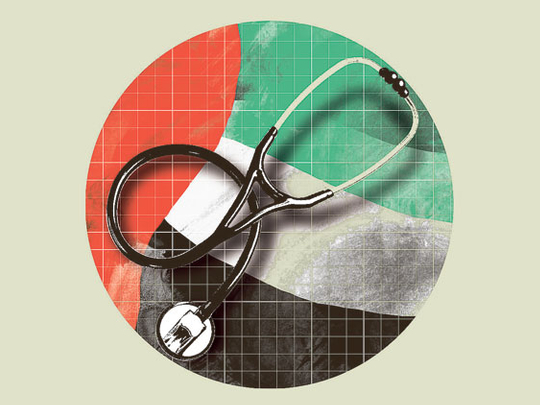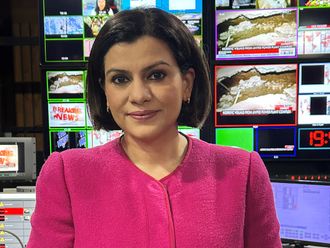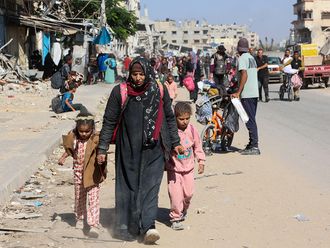
Health care services in UAE have been going downhill over the past few years. In fact, I can say with some degree of confidence that they have hit rock bottom. A careful examination of the conditions of hospitals with all the respective departments and divisions reveals the unthinkable — the services are in dire need of an overhaul.
Patient care lacks the most basic human touch, unprofessional emergency services and the rise in the number of medical errors are all manifested in every health care institution. In addition, a quick look at the numerous complaints from citizens and residents, detailing repeated medical negligence, often inhumane treatment of patients with special needs, and misdiagnosis of complicated conditions all support the claim that our medical services are in decline. This is apparent across the country from local clinics and hospitals to local health services (in Abu Dhabi and Dubai) to those provided by the federal government. And this is alarming.
The medical services that come under the purview of the federal health care system are, in general, very poor in all the hospitals and medical clinics in the northern emirates (Sharjah, Ajman, Umm Al Quwain, Ras Al Khaimah and Fujairah). There, the hospitals and clinics lack basic medical equipment and are without basic things that patients are in dire need of, including beds and bedsheets. The situation is such that patients often bring in their own bedsheets!
Inexperienced doctors are to blame for this medical crisis. The Ministry of Health employs doctors to cut costs. This also applies to other personnel like nurses, pharmacists, etc. In the federally-run hospitals and clinics in the northern emirates patients do not find needed medications. Often imported medications are purchased on a small budget allocated for such an important element of health care. Sometimes, medications are imported from cheap sources, and are often not effective.
Painkillers prescribed
Under such circumstances, patients from the northern emirates escape to the hospitals in Dubai or Abu Dhabi, thinking that health care would be better there than in their own emirate. But is it true that health services in Abu Dhabi and Dubai are better? The fact is that health care services in both Abu Dhabi and Dubai are not necessarily better than those of the northern emirates. In Dubai similar conditions are found in hospitals. In addition, the numbers of health care institutions that currently sustain Dubai is small when seen in the context of the increasing population. If the patient decided to use private sector health care, he will end up spending huge amounts of money.
In Abu Dhabi, the health care system is not any better than elsewhere in UAE, despite the claims Abu Dhabi Health Authority makes about meeting international standards in caring for people. A visit to the emergency departments in Shaikh Khalifa Medical Centre (SKMC) or Al Mafraq Hospital reveals the added agony that patients have to endure. The emergency rooms are filled with tens, sometimes hundreds, of patients who wait for long hours before they can be seen by a physician.
During the waiting period, patients' conditions may deteriorate, only to eventually be seen by a doctor for few minutes who, in turn, would prescribe painkillers! The exponential increase in the population of Abu Dhabi and the shortage of medical institutions have led to crowded emergency wards. Sometimes patients are obliged to wait for an entire day in the emergency ward before he or she can find a shared room.
Under such circumstances, doctors often decline to admit patients suffering from serious ailments or even refuse to diagnose these conditions. Last month, a patient who had undergone kidney transplant surgery abroad came to the SKMC emergency ward suffering from a terrible complication. Although she was in a severe pain, she had to wait more than four hours before anyone could see her. Eventually she was put in a critical care room waiting for a nephrologist. Several hours later, the nephrologist saw the patient and after prescribing painkillers asked her to go home.
The patient begged the doctor not to let her go and to admit her instead. The doctor refused and sent her home. She went back home only to realise that her condition had worsened and she almost died. The next day, her husband brought her back to SKMC emergency again in a much worse condition only for the doctors to realise that she had additional problems in her digestive system which nearly ruined her transplant surgery and killed her. She stayed for more than a week before she recovered. Such situations arise daily in Abu Dhabi hospitals. Patients may lose their lives because of the decline in the quality of health care.









